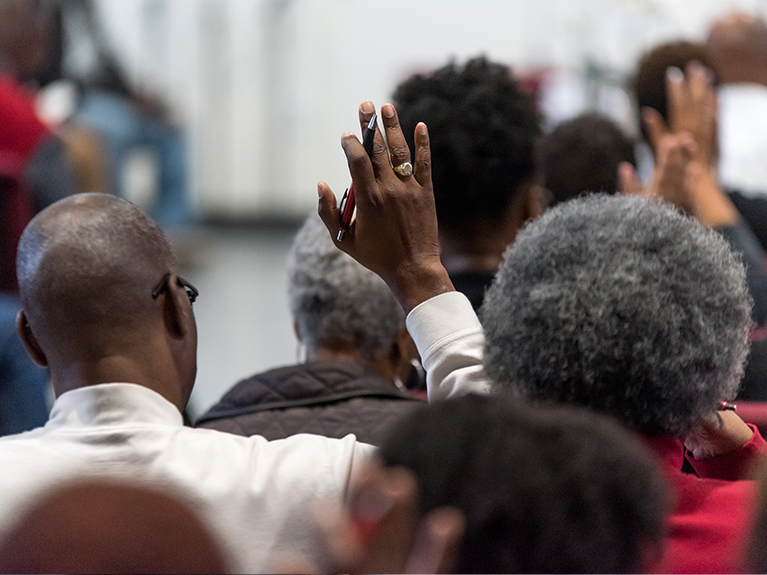Activating Faith Leaders to Support Advance Care Planning Legislation
 Advance care planning (ACP) is one way to determine a person’s goals of care long before they become a patient. However, it is a resource that often goes underutilized. As the Interfaith Action Council at the Coalition to Transform Advanced Care (C-TAC) and active members of the faith community, we know the value of having meaningful conversations and the way they can transform a person’s outlook. Therefore, we are excited that Congress is presented with an opportunity to increase access to advance care planning through bicameral, bipartisan legislation.
Advance care planning (ACP) is one way to determine a person’s goals of care long before they become a patient. However, it is a resource that often goes underutilized. As the Interfaith Action Council at the Coalition to Transform Advanced Care (C-TAC) and active members of the faith community, we know the value of having meaningful conversations and the way they can transform a person’s outlook. Therefore, we are excited that Congress is presented with an opportunity to increase access to advance care planning through bicameral, bipartisan legislation.
This legislation would: (1) Remove the copay/cost-sharing for Medicare Advance Care Planning (ACP) counseling in all situations; (2) Include licensed clinical social workers in the definition of eligible practitioners who can bill for Medicare ACP counseling services; (3) Educate providers about the ACP counseling codes and the value of the ACP Counseling, and report back to Congress on those activities; and (4) Direct Medicare Payment Advisory Commission (MEDPAC) to do a study to evaluate ACP under the Medicare program.
ACP sessions give individuals time with their providers or other facilitators to discuss the care they would like. These sessions can occur during an annual wellness visit (AWV) or when a person receives a serious illness diagnosis. However, for many, particularly within communities of color, these sessions are not used even during the annual wellness visit. Furthermore, Medicare beneficiaries are subject to co-pays when these sessions occur outside of the annual wellness visit. We know that in the course of illness, having more conversations about your care is better than having less. When those conversations occur outside of a doctor’s visit, they should not carry a financial cost. Indeed, this legislation will raise awareness of the need for honest conversations and any chance to remove real or perceived barriers to those conversations should be applauded. As trusted partners, faith leaders can also educate their congregations about the importance of advance care planning and shared decision-making.
“As a rabbi who has worked in congregations and with older adults, I can attest to the need for increased access and awareness of advanced care planning. As the Baby Boomers age, the need for families and individuals to have meaningful opportunities to have these conversations has never been more important, It is important to recognize the power of faith communities in these conversations. In our Jewish community, as Boomers age, there is a growing recognition that there is a need to examine the issues surrounding end-of-life care and planning and to seek guidance from our tradition. Thus, there is a natural relationship or partnership emerging between faith tradition and societal support.” -Rabbi Richard Address.
“As an African American male and Muslim Imam, the injustice and inequality in healthcare must be considered and addressed in any legislation put forth by our political leaders. The most vulnerable and neglected members of our society must be given priority and extra attention surrounding co-payment, home care visits, and access to good mental health counseling, that identity with their culture and religious prevenances. Many members of the African American and Indigenous communities must choose between the high cost of health care visits and basic needs of food, clothing, shelter, and childcare. This injustice has plagued our society for many generations and now is the time to address this issue.”
– Iman Yusuf Hasan
Expanding the number of individuals who can bill for facilitating these conversations, also creates an opportunity for important conversations that increase control over your care and reduce unnecessary hospital costs. Addressing social determinants of health is a key step in eliminating disparities in. Utilizing social care providers like caregivers, social workers, and faith leaders, who are familiar with the social needs of patients, ensures that care is designed with a concern for the whole person. This includes the spiritual need of an individual as well as the family that supports that person. To do this, we must also examine the system surrounding that family, their economic, social, and spiritual system; from housing to access to food and the ability to work.
The Interfaith Action Council is dedicated to activating a network of faith leaders across the nation around C-TAC’s priorities. With this new opportunity, we will use our ability to reach others to champion the ways this piece of legislation will close disparity gaps and empower patients.
Please view and share our resources on the #ACPequity legislation.


